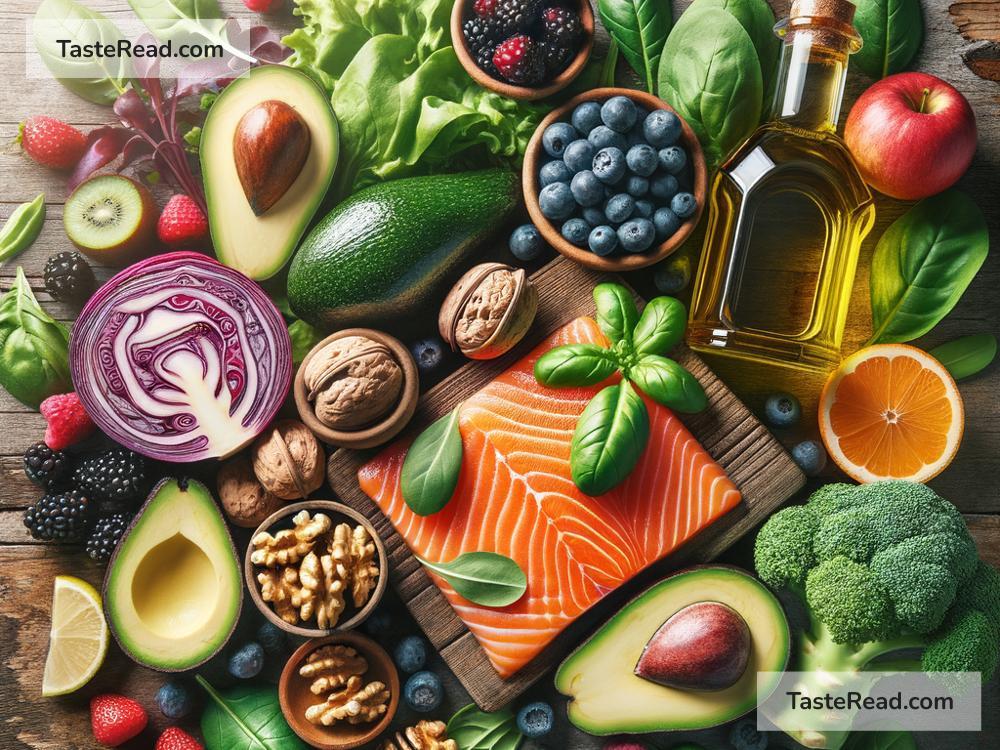Foods that Promote Arterial Health: Simple Steps for a Happier Heart
Your arteries are like highways in your body, carrying oxygen-rich blood to your organs, muscles, and tissues. When arteries are healthy, blood flows freely, keeping your heart and body strong. But when arteries get clogged or stiff from unhealthy lifestyles, conditions like high blood pressure, heart attacks, and strokes can occur.
The good news? Food can play a big role in keeping your arteries healthy. By choosing the right foods, you can reduce inflammation, lower cholesterol, and strengthen your cardiovascular system. In this blog, we’ll explore simple, delicious foods that promote arterial health.
1. Fruits: Nature’s Sweet Superfood
Fruits are packed with essential vitamins, minerals, and antioxidants that support artery health. They’re also low in unhealthy fats and high in fiber, making them a perfect daily snack.
- Berries: Blueberries, strawberries, raspberries, and blackberries contain powerful antioxidants called anthocyanins. These compounds help reduce inflammation and improve the elasticity of your arteries, allowing blood to flow better.
- Citrus Fruits: Oranges, lemons, and grapefruits contain Vitamin C, which helps strengthen the walls of your arteries and prevent damage caused by free radicals.
- Avocados: Though technically a fruit, avocados are rich in healthy fats. They contain monounsaturated fats that help lower LDL (“bad”) cholesterol levels, which is great for unclogging arteries.
Quick Tip: Eat fresh, whole fruits instead of sugary fruit snacks or juices. Whole fruits provide more fiber, and the natural sugars won’t spike your blood sugar as processed snacks do!
2. Whole Grains: Fuel for Healthy Arteries
Whole grains are an excellent source of fiber. Fiber helps bind cholesterol and carry it out of your body, reducing buildups in your arteries.
- Oats: Eating a bowl of oatmeal for breakfast can work wonders for your arteries. The soluble fiber found in oats helps lower cholesterol and improve heart health.
- Brown Rice: This whole grain offers magnesium, a nutrient that helps relax arterial walls, improving blood flow.
- Quinoa: Quinoa is not only fiber-rich, but it’s also loaded with protein and antioxidants, making it a heart-healthy alternative to refined grains.
Quick Tip: Swap out white bread and pasta for whole-grain options to get maximum artery-friendly benefits.
3. Leafy Greens: Fresh, Crunchy, and Full of Benefits
Vegetables like spinach, kale, and broccoli are nutritional powerhouses that promote artery health. They’re high in nitrates, compounds that boost nitric oxide levels. Nitric oxide relaxes and widens blood vessels, improving blood circulation.
- Spinach: Loaded with potassium and magnesium, this leafy green helps regulate blood pressure, protecting arteries.
- Kale: Kale is full of Vitamin K, which is important for healthy blood clotting and reducing calcium deposits in arteries.
- Broccoli: This veggie contains sulforaphane, a compound that helps protect arterial walls from damage.
Quick Tip: Add these greens to salads, smoothies, soups, or as a side dish with your main meal for added flavor and nutrients.
4. Fatty Fish: Omega-3s for a Strong Heart
Fatty fish, such as salmon, mackerel, and sardines, are among the best foods for artery health. They contain omega-3 fatty acids, which reduce inflammation, lower triglyceride levels, and decrease plaque buildup in arteries.
Studies show that omega-3s also help lower blood pressure and improve the function of arterial walls. Aim to eat fatty fish twice a week to reap these benefits.
If you don’t eat fish, you can still get omega-3s from plant-based sources like walnuts, flaxseeds, and chia seeds.
Quick Tip: Try grilling, baking, or steaming fish instead of frying to keep it light and heart-friendly.
5. Nuts and Seeds: Crunch Your Way to Better Arteries
Nuts and seeds are small but mighty, packed with heart-healthy fats, fiber, and antioxidants.
- Walnuts: These are rich in omega-3 fats, which improve artery function and reduce inflammation.
- Almonds: High in Vitamin E and monounsaturated fats, almonds help lower cholesterol and improve arterial health.
- Chia Seeds and Flaxseeds: These tiny seeds contain fiber, omega-3s, and antioxidants that help clean up your arteries.
Quick Tip: Add a handful of nuts or seeds to yogurt, salads, or enjoy them as a snack during the day.
6. Olive Oil: Liquid Gold for Your Heart
Olive oil is the cornerstone of a heart-healthy diet, especially the Mediterranean diet. It contains monounsaturated fats that help reduce LDL cholesterol while increasing HDL (“good”) cholesterol. Olive oil also contains anti-inflammatory compounds that protect artery walls.
Quick Tip: Use extra virgin olive oil for salad dressings, drizzling over vegetables, or cooking at low to medium heat.
7. Dark Chocolate: A Sweet Surprise
Good news for chocolate lovers! Dark chocolate (70% cocoa or higher) contains flavonoids, a type of antioxidant that helps improve arterial flow and reduce the risk of heart disease.
The catch? Moderation is key. Dark chocolate is healthy in small amounts, but consuming too much can introduce unwanted sugars and fats into your diet.
Quick Tip: Limit yourself to one or two small squares per day for maximum benefits without the guilt.
Conclusion: Eat Well for Healthier Arteries
Your heart and arteries work hard every day to keep you alive and active. By fueling your body with foods like fruits, vegetables, whole grains, fatty fish, nuts, seeds, and olive oil, you can give them the support they need.
Small, consistent changes in your diet can make a big impact. Swap out processed foods for whole, nutritious alternatives, and your arteries will thank you. A healthier heart starts with your plate, so why not get started today? It’s never too late to eat for arterial health—and for a happier, stronger you!


